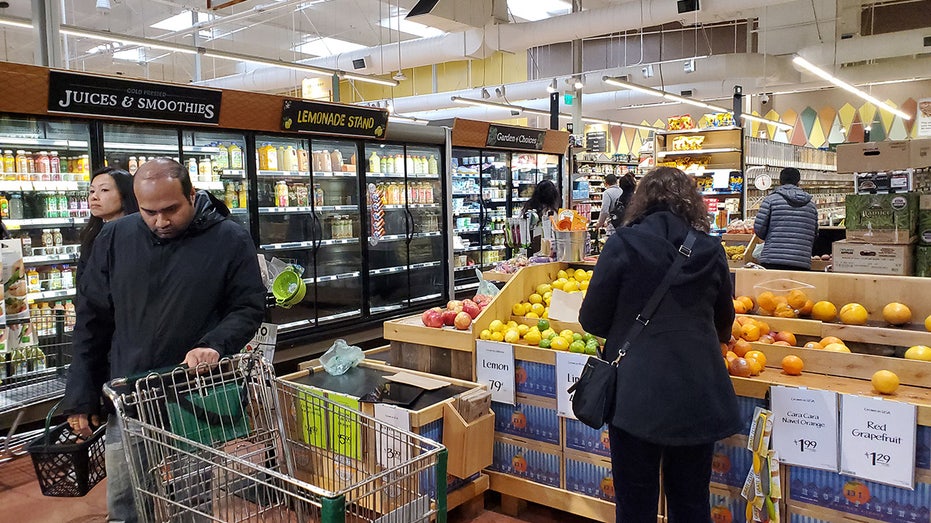Instacart enlisting robots to cut labor costs
Automating grocery delivery plan revealed as hospitality industry copes with labor shortages
Restaurants look to robots to fill server shortage
As many Americans stay at home rather than return to work due to the pandemic, some restaurants are using innovative methods to address the staffing shortage. FOX Business' Ashley Webster with more.
Robots could soon be shopping for your groceries.
Instacart, the San Francisco-based grocery delivery and pick-up company, is reportedly exploring new technology to enlist robots for its in-store grocery shopping to replace some of its gig workers in a move to cut costs, according to documents detailing the plan obtained by Bloomberg.

Instacart, the San Francisco-based grocery delivery and pick-up company, is reportedly exploring new technology to enlist robots for its in-store grocery shopping to replace some of its gig workers in a move to cut costs. (Photo by Smith Collection/G
The strategy reportedly consists of constructing automated fulfillment centers across the country enlisting hundreds of robots to transport food items such as cans of soup or boxes of cereal while gig workers handle produce and deli items, Bloomberg reported Tuesday. Some of the automated centers would be attached to brick-and-mortar grocery stores, though it’s unclear which supermarket chains will work in tandem with the company, according to the report. The documents cited were dated July and December 2020 and sources familiar with the company said Instacart is behind on the plans.
Currently, Instacart utilizes thousands of gig workers to shop through grocery stores for delivery and pick up, however, consumers pay up to 25% in delivery fees, tips, and price hikes per order, Marc Wulfraat, president of logistics consulting firm MWPVL International Inc., told Bloomberg.
WALMART SIDELINES ROBOTS TO CATER TO PANDEMIC SHOPPING TRENDS: REPORT
"We’re constantly exploring new tools and technologies that support the needs of the 600 retailers we partner with and further enable their businesses to grow and scale over the long-term. Shoppers are and will continue to be central to Instacart and our service, and any suggestion otherwise is wholly inaccurate," Instacart said in a statement to FOX Business.
Automating grocery delivery production is the latest move in a hospitality industry-wide trend with labor shortages at restaurants, fast food chains and grocery stores. The labor shortage has also set grocery store prices rising in recent months. The last consumer price index released by the Bureau of Labor Statistics showed food items like fruits and vegetables increased by 1% in the month of March while meat, poultry, fish and eggs went up by 0.7%.
CLICK HERE TO READ MORE ON FOX BUSINESS
"Currently, labor challenges in several sectors are contributing to higher costs and reduced inventory fill rates. Additionally, labor and transportation challenges contribute to the volatility of transportation assets, making it difficult to reach the reliability of inbound shipments that existed pre-COVID," Nate Rosier, a senior vice president of the supply chain consulting firm enVista told FOX Business last month. "The culmination of these factors is leading to higher costs and more unstable inventory in grocery stores across the country."
FOX Business reporter Cortney Moore contributed to this report




















